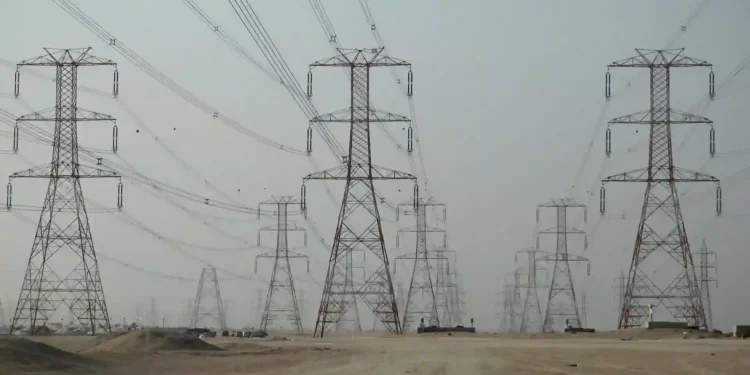Iraq and Saudi Arabia have signed an executive report on the modalities of the electricity interconnection agreement, implementing the MoU signed between the two countries at the beginning of 2022.
The proposed interconnection will link Arar in Saudi Arabia to Yusufya near Baghdad, and will cover a distance of 435 kilometers. The electricity interconnection will have a capacity of 1,000 megawatts and a voltage of 400 kilovolts.
Minister of Energy Prince Abdulaziz Bin Salman attended the event, while praising Crown Prince Mohammed Bin Salman for his role in advancing the electricity interconnection with Iraq, which has been seen as a confirmation of continuous cooperation between the two countries across sectors.
The minister also expressed that the agreement signifies the desire for both countries to consolidate their economic relations, and ensure the speedy implementation of the project in an effort to deliver the aspirations of their respective leaderships and people.
The Minister further explained that the project falls within the scope of the Kingdom’s Vision 2030 and its related programs, and focuses on capitalizing on the Kingdom’s strategic location.
The implementation of the project will support the reliability of the electrical grids in the two countries, support the integration of the network into renewable energy, achieve cost savings, and achieve optimum investment in future electricity generation projects. The project is also seen as a step towards establishing a regional market for electricity trade.
Agreement with Iraq in addition to power from Gulf countries
This is in addition to a contract that was signed between the Gulf Interconnection Authority and the electric grid of Southern Iraq at the Jeddah Security and Development Summit held in Saudi Arabia.
The contract encompasses the construction of supply lines from its Kuwait substation, to the Al-Faw station in Southern Iraq, and will supply it with 500 megawatts of power from the Gulf countries.
The total expected transmission capacity of the network will be approximately 1,800 megawatts, and construction work is scheduled to take approximately 24 months.


















